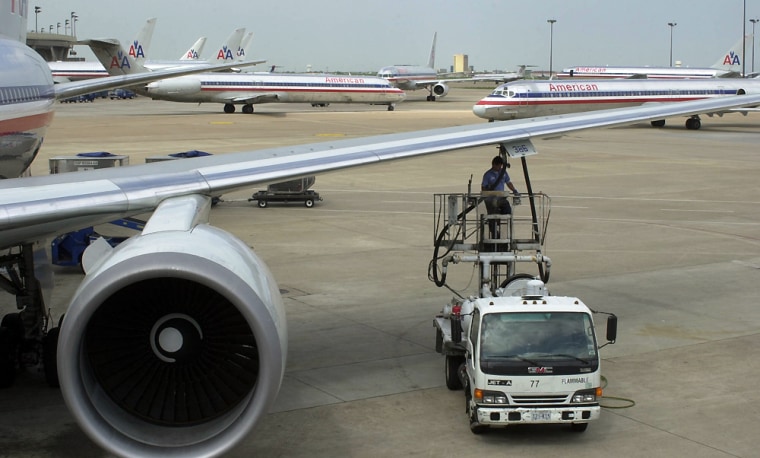U.S. airlines will likely lose at least $5 billion this year along with more industry jobs due to high fuel costs, the head of the airlines' main trade group warned Congress Thursday.
Over the last four years, airlines have lost $32 billion during the industry's worst financial downturn. The airlines blame their woes on crude oil prices that have more than doubled, increased security costs and low fares brought on by intense competition.
"We are projecting additional losses of at least $5 billion in 2005," said James May, president of the Air Transport Association. "If oil stays high and our taxes with it, I expect more jobs lost, more flights cut and more airlines in crisis."
Testifying before a House subcommittee looking at the impact of high energy costs, May forecast U.S. airlines will pay an extra $6.8 billion for fuel this year than in 2004.
As a result, May said the airline industry is losing an estimated $17,000 every minute.
Eleven of the 12 passenger airlines rated by Standard & Poor's are considered "junk bond" quality, with only Southwest Airlines Inc. considered investment grade, he said.
May said even though flights are more crowded, passengers are paying less for tickets due to intense competition, which makes it difficult for airlines to offset jet fuel costs.
"They're full all right. Full of cheap fares and expensive fuel," he said.
About one-fourth of U.S. passengers pay $200 or less, including taxes, for a round-trip ticket. Two-thirds of passengers pay $300 or less.
"That means that every single flight on average must be at least 80 percent full of 'paying' passengers to avoid losing money -- not to make a fortune" May said.
Airlines consumed 18.6 billion gallons of jet fuel last year. Each penny rise in a gallon of fuel increases the industry's annual operating expenses by $186 million, he said.
"Viewed from an employee perspective, every $1 increase in the price of a barrel of crude puts another 5,500 airline jobs at risk," he said.
Airlines have taken steps to reduce fuel costs, such as reducing plane idling time and even replacing metal cutlery in first-class food service with plastic to reduce weight.
